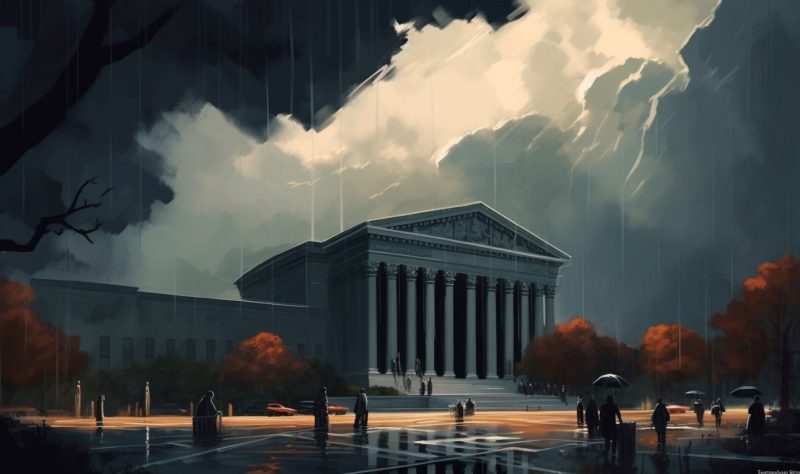
In a stunning and controversial decision, the Supreme Court of the United States (SCOTUS) has ruled in favor of granting former President Donald Trump significant immunities from prosecution for actions taken during his presidency.
This decision has sent shockwaves through the nation, raising alarming concerns about the potential erosion of democratic principles and the establishment of a quasi-monarchical presidency.
The Ruling: Shielding Presidential Crimes
The Supreme Court’s ruling, which came down along ideological lines, effectively places the president above the law. Justices Gorsuch, Kavanaugh, Thomas, and Alito, with Chief Justice Roberts’ tacit support, have endorsed the notion that a president’s actions, even if criminal, can be immune from prosecution if performed under the guise of official duties. This unprecedented ruling suggests that presidential powers can supersede legal accountability, creating a chilling precedent for future administrations.
Key Points from the Decision:
- Broad Immunity: The ruling implies that any actions taken as part of the president’s official responsibilities could be shielded from prosecution, regardless of their legality.
- Dangerous Precedent: This decision could pave the way for future presidents to act with impunity, secure in the knowledge that their official actions are beyond the reach of the law.
Outcry from Legal Experts and Politicians
The backlash to this ruling has been swift and fierce. Legal scholars and politicians alike warn that this decision effectively grants the president king-like powers, undermining the core principle that no one, not even the president, is above the law. Representative Jamie Raskin (D-Md.) lambasted the ruling, stating, “We don’t have a king here. The Constitution is clear that the president must ensure laws are faithfully executed, not violated for personal gain” (Politico).
Raskin and others argue that this ruling not only delays Trump’s pending federal trial for his efforts to subvert the 2020 election but also sets a dangerous precedent for future presidential misconduct. The decision is seen as a significant setback for Special Counsel Jack Smith, who has been striving to expedite Trump’s trial ahead of the 2024 election.
Alarm Bells Ringing:
- Erosion of Legal Integrity: The ruling undermines the foundational principle that the law applies equally to all, jeopardizing the very fabric of American democracy.
- Political Manipulation: Critics argue that the Court’s decision is influenced by its current composition, which includes three justices appointed by Trump, raising concerns about judicial impartiality.
Project 2025: Dismantling the Administrative State
Adding to the concerns is the Republican-led Project 2025, a comprehensive plan aimed at dismantling the administrative state and consolidating executive power. This initiative, spearheaded by conservative think tanks and aligned with Trump’s vision, seeks to significantly reduce the power of federal agencies, curtail regulatory oversight, and expand presidential authority.
Key Objectives of Project 2025:
- Weakening Federal Agencies: The plan aims to strip agencies of their regulatory powers, effectively nullifying decades of established environmental, labor, and consumer protections.
- Centralizing Power: By reducing the influence of federal agencies, Project 2025 seeks to concentrate power within the executive branch, enhancing presidential control over governmental functions.
Implications for American Democracy
The convergence of the SCOTUS ruling and Project 2025 signals a profound shift towards an autocratic presidency, where the executive branch wields unchecked power. This trajectory threatens to dismantle the system of checks and balances that has been the cornerstone of American democracy for over two centuries.
Potential Consequences:
- Unchecked Presidential Power: The president could potentially bypass legal constraints and act with near-absolute authority, undermining the rule of law.
- Democratic Erosion: The weakening of federal agencies and regulatory frameworks risks eroding public trust in government institutions and diminishing democratic accountability.
In conclusion, the Supreme Court’s ruling on presidential immunity, coupled with the ambitious Project 2025, marks a critical juncture in American political history. The decision to shield presidential actions from prosecution and the push to dismantle the administrative state pose a direct threat to the principles of democracy and the rule of law. As the nation grapples with these developments, the need for vigilance and robust defense of democratic norms has never been more urgent.
